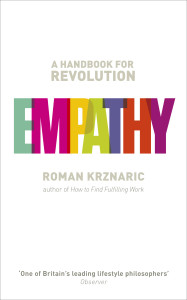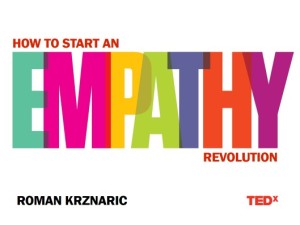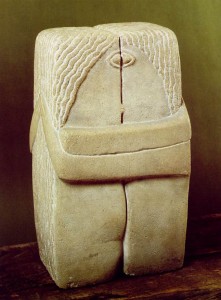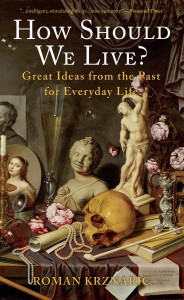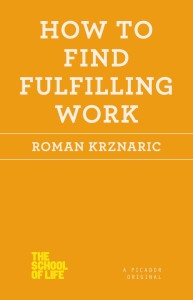It was a huge privilege and pleasure to give one of The School of Life’s Sunday Sermons at London’s historic Conway Hall recently. Last time I’d been there was to discuss the power of vulnerability with emotions researcher Brené Brown. This time I was there to talk about my new book Empathy, but that was just part of it. The 500-strong congregation stood at the beginning and end to sing two great empathy-related songs: Stevie Wonder’s Living for the City and Nina Simone’s Feeling Good. There were even little shoe-shaped biscuits from Biscuiteers.
Here’s the video from the Sermon in full, where I talk about the six habits of highly empathic people and how to make them part of your everyday life.
Roman Krznaric’s new book Empathy: A Handbook for Revolution is out now.
